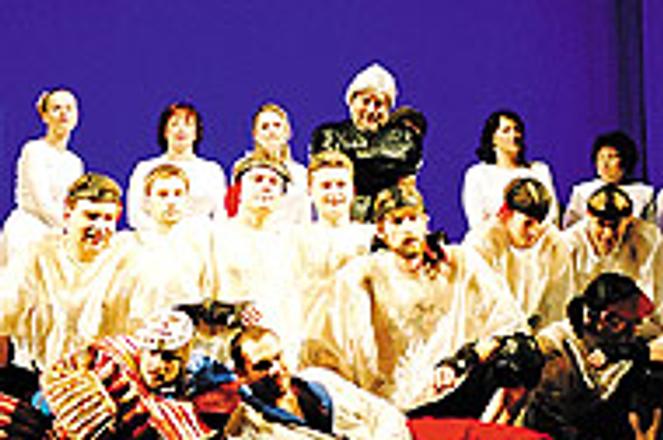PERFORMANCE, not artifice, will be the aim of the festival.photo: Courtesy of the Czech National Theatre
“OPERA and ballet [institutions] are sometimes considered museums where the same repertoire works get ‘dusted off’ over and over, and where new, modern theatre works have a hard time breaking through,” said Marián Chudovský, the director of the Opera of the Slovak National Theatre (SND).
To prove this wrong, the management of the Opera SND has decided to organise the International Festival of Music Theatre in Bratislava to prove that opera and ballet are “living, dynamically developing music-theatre forms that can address the man of today,” said Chudovský.
The festival hopes to begin a new tradition in the capital’s cultural life with a focus on the dramatic rather than interpretative part of works.
Each year, at the end of its season, the national theatre plans to invite lesser or completely unknown works as well as modern performances to its stage. The core of the event’s programme will primarily consist of works from neighbouring countries.
The Slovak organisers addressed their partners from the Czech Republic and Austria, with whom they have shared a long history, to help organise the festival. They hope that “the excellent music and opera tradition of Austria, the potential of Czech music and theatre, and the Slovak success in the sphere of opera performance are great foundations for the mutual presentation of our cultures,” Chudovský said.
The first year of the festival will bring eight performances between June 4 and 12, half of which are SND productions while the rest hail from the Czech Republic and Austria.
It will open with the theatre’s last premiere of this season, Georg Friedrich Händel’s Alcina. The opera is one of Händel’s greatest works and one of the best in baroque repertoire, though it rarely makes it onto drama stages. It will be performed under the baton of the Opera SND’s new chief-conductor Jaroslav Kyzlink, in Italian.
The SND will deliver two more operas and ballets. The evening of June 7 will hold one of each genre: opera Duke Bluebeard’s Castle and ballet The Wooden Prince, both written by Hungarian composer Béla Bartók. The two one-act fairytale opuses are currently considered the best in the theatre’s repertoire, and also enjoy success abroad.
The recently premiered ballet Spartacus (see Vol 10, No 18, page 13), arranged in a neo-antique style by the team around Ján Ďurovčík, will close the festival on June 12. The leader of slave uprising in ancient Rome will be preceded a day earlier by Prince Carlos in the Giuseppe Verdi opera Don Carlos. Directed by Jozef Bednárik, the performance, which has been in the SND’s repertoire for seven years, will feature renowned tenor and Opera SND soloist Sergej Larin.
The festival’s guests, the Prague and Brno national theatres and the Neue Oper Wien from Vienna, will deliver four operas altogether. Prague’s theatre will present Leoš Janáček’s lesser-known sci-fi comedy Výlety páně Broučkovy (Mr Brouček’s Trips) on June 8, and Martin Smolka’s recent attempt to celebrate the 1998 Olympic victory of Czech hockey players, Nagano, on June 9. The Brno theatre has also reached into Janáček’s repertoire and arrives on June 10 with his opera Z mrtvého domu (From a Dead House), inspired by Fyodor Dostoevsky’s experiences in a tsar’s prison where the writer was sent for political reasons.
Endlich Schluß (Finally the End) closes the festival’s programme. Based on the contemporary play by Peter Turrini, the tragic-grotesque opera will be perfromed by the Neue Oper Wien ensemble, which offers an alternative to the Viennese “stone” theatres.


